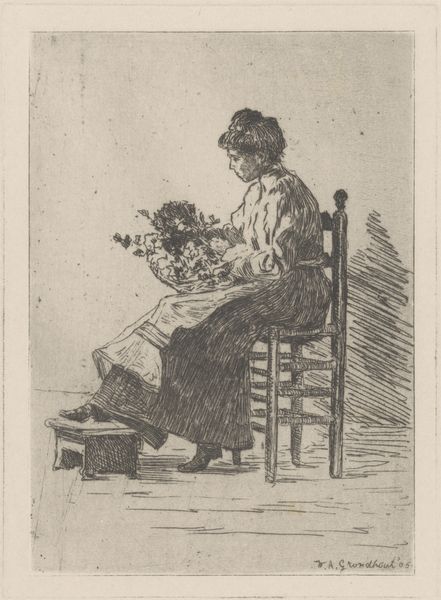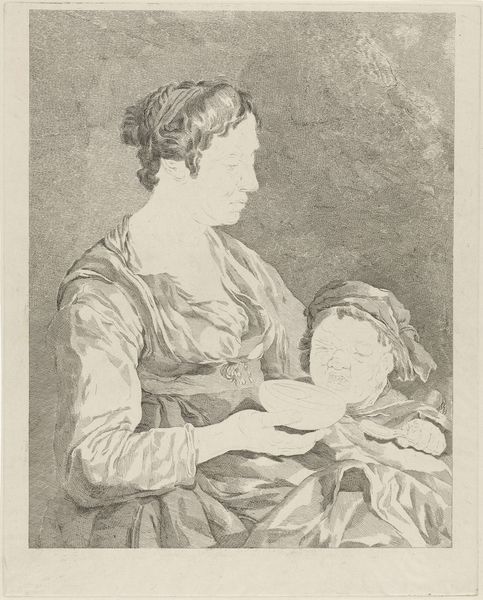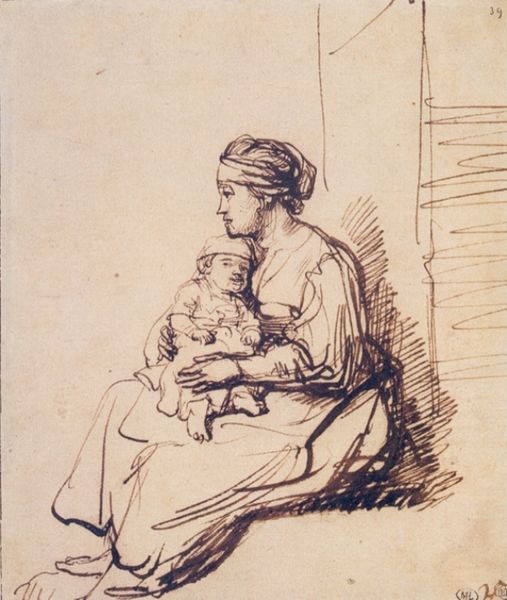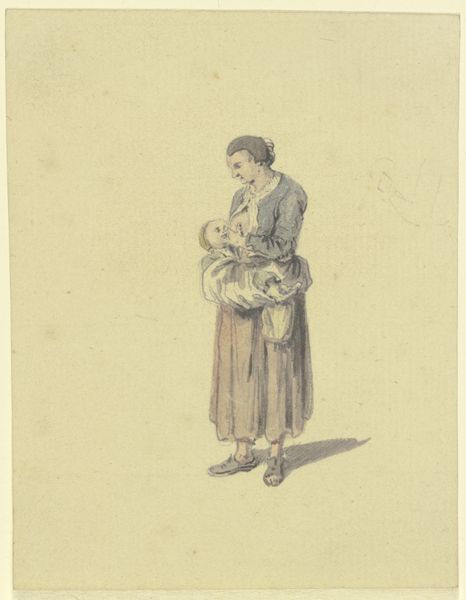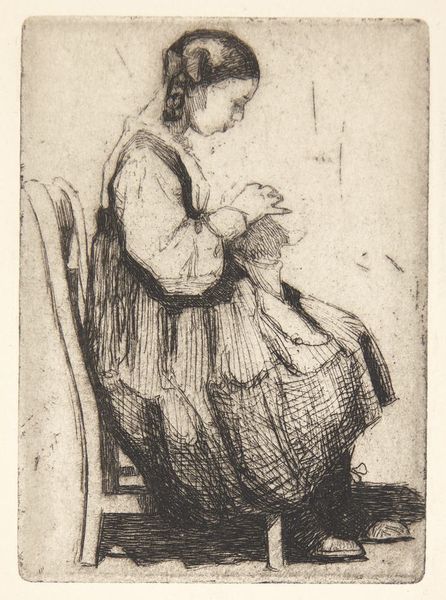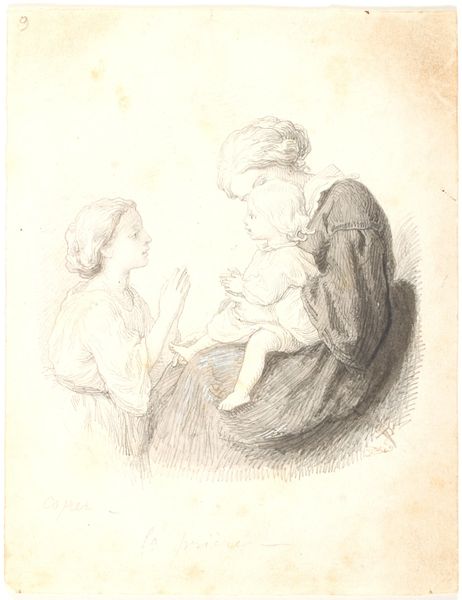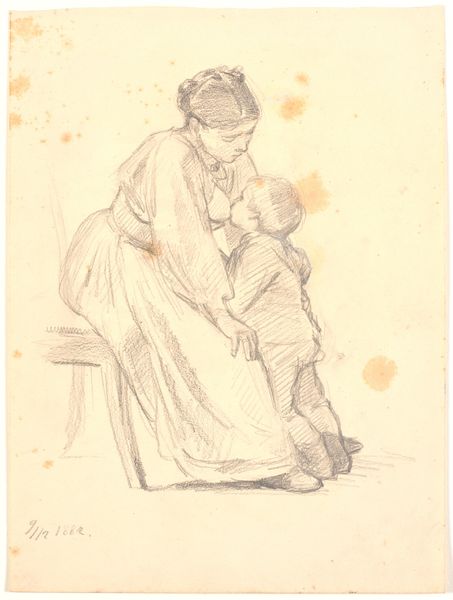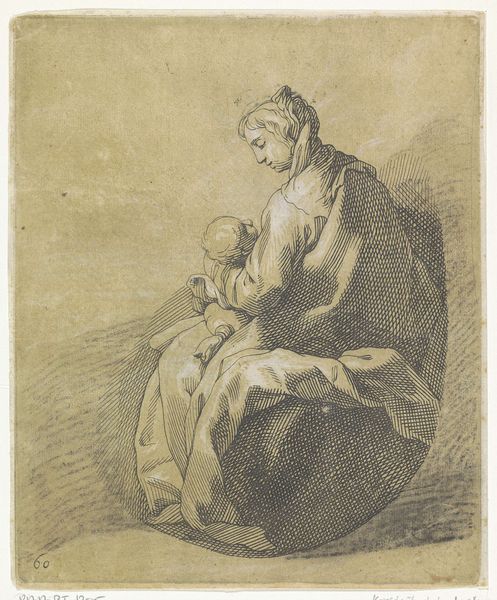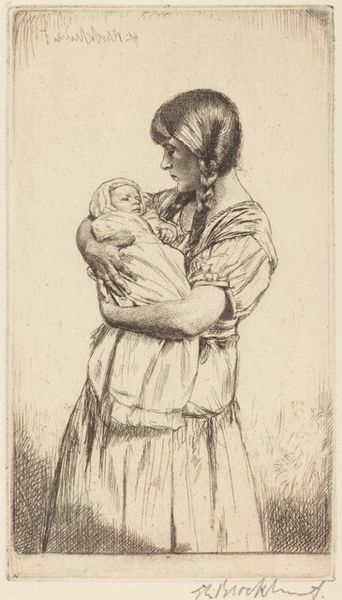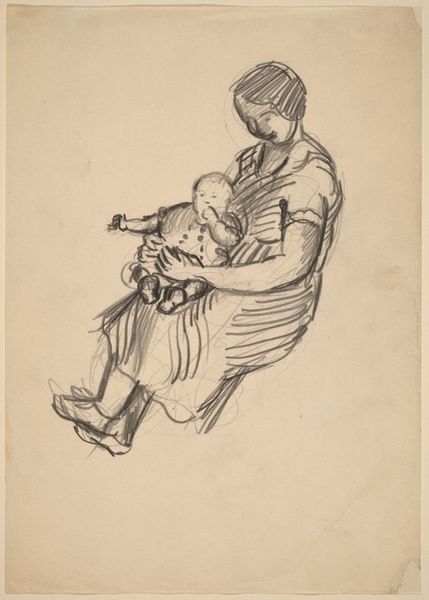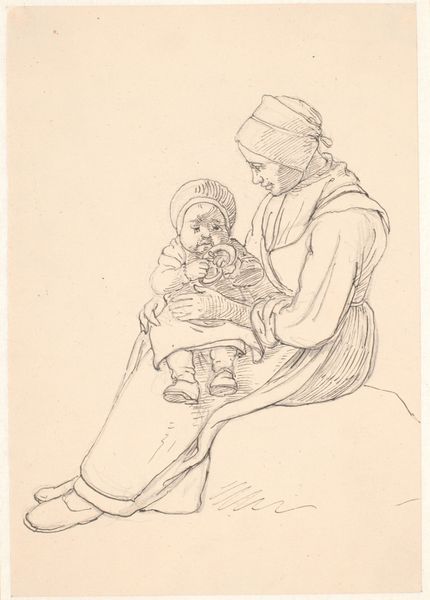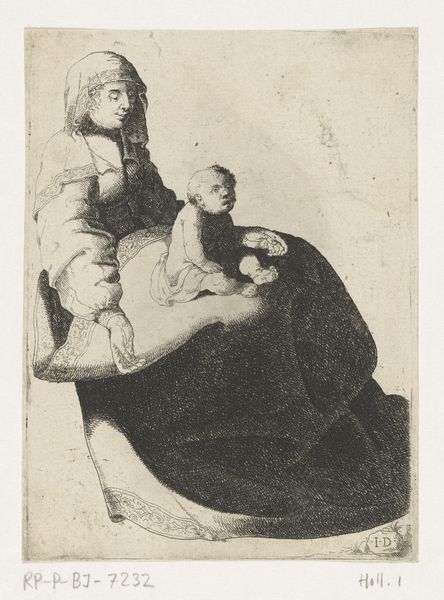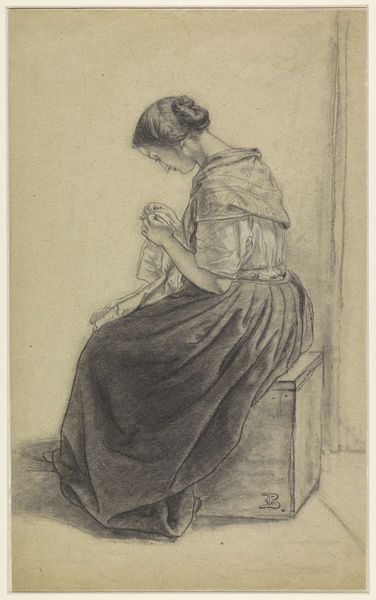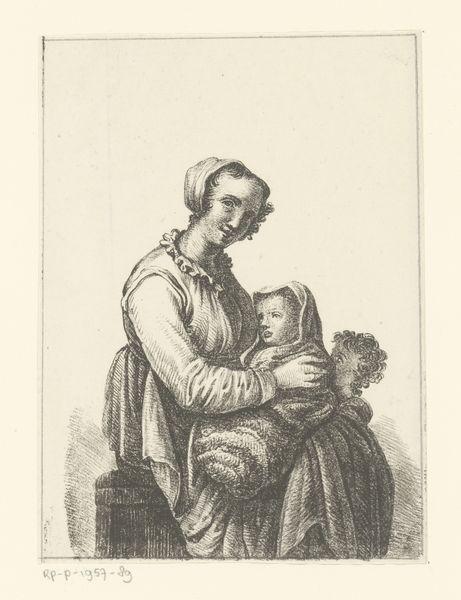
print, etching
#
portrait
# print
#
etching
#
figuration
#
genre-painting
#
realism
Dimensions: height 159 mm, width 130 mm
Copyright: Rijks Museum: Open Domain
Eberhard Cornelis Rahms created this etching of a mother and child, offering us a glimpse into 19th-century Dutch domestic life. The image, rendered in delicate lines, suggests the mother is part of a close-knit community. Her traditional clothing speaks to the importance of regional identity and customs, while the act of cradling her child conveys universal themes of care. Rahms made this work during a period of significant social and economic change in the Netherlands. The rise of industrialization, urbanization and new ideologies transformed the country. Artists often responded to the changes by turning inward, depicting everyday life in a way that celebrated traditional values and simple virtues. The etching would have circulated among collectors and art enthusiasts, perhaps serving as a reminder of an idealized past. To truly appreciate this work, we can look at the social conditions and cultural values of the Netherlands during Rahms' time. Exploring popular literature and visual culture of the time would teach us more about the role of motherhood. Art like this reminds us that history is always present, shaping the way we see the world around us.
Comments
No comments
Be the first to comment and join the conversation on the ultimate creative platform.
